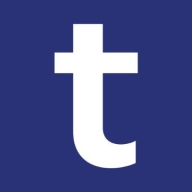

Pega Platform and Temenos Quantum are leading contenders in the realm of digital transformation platforms. Pega Platform appears to have the upper hand due to its comprehensive feature set and integration capabilities.
Features: Pega Platform offers robust case management, BPM capabilities, rapid prototyping, and low-code development, making it a versatile choice for enterprises. It excels in scalability with integration capabilities through Pega Cloud and GetNext. Temenos Quantum delivers a streamlined platform ideal for digital transformation, offering strong mobile and web development tools, appreciated for its user-friendliness and security.
Room for Improvement: Pega Platform faces challenges with complex upgrades and high pricing, alongside needing enhancements in cloud availability and RPA functionalities. It demands extensive training for full utilization. Temenos Quantum encounters integration complexities with native apps and its closed-loop system and limited product maturity hinder usability, with users desiring native features and improved documentation.
Ease of Deployment and Customer Service: Pega Platform supports flexible deployment across on-premises, public, hybrid, and private cloud, with mixed experiences in technical support efficiency. Temenos Quantum offers on-premises and private cloud deployment options, often praised for responsive support, though resolution speed for unique customer issues could improve.
Pricing and ROI: Pega Platform is priced high, often aligning with large enterprises, yet offers significant ROI through rapid deployment and process efficiencies. Temenos Quantum, while also expensive, especially in renewals, provides competitive pricing for smaller projects, recognized for enabling swift deployment and yielding favorable ROI.
The technical support from Pega is very low, rating a one or two out of ten.
I never needed support from the platform standpoint, but if additional features are required, we have regular meetings with the product team for feedback.
Pega's technical support team is very helpful.
Currently, big banking providers and insurance providers, even the members for healthcare payers, are using more than millions of operations on a daily or weekly basis.
With the recent development of AI agents in Pega Platform 24.2, the adoption is not heavy due to regulations around using external LLM by customers, especially regulated customers in BFSS and healthcare.
Pega introduced Constellation, which allows a user to build a more engaging visual experience.
My learning curve in robotics has been challenging.
Pega is priced higher than open-source options like Flowable but is suitable for large-scale industries like banking and insurance.
The pricing is expensive, and this is an issue.
From a licensing perspective, it is higher than the competition.
Management capabilities such as dashboards.
Pega Platform is excellent for enterprise-level solutions with integrations to entire systems, including case management, service orchestration, CRM, decision-making capabilities, digital process automation, and AI-driven functionalities.
| Product | Market Share (%) |
|---|---|
| Pega Platform | 6.7% |
| Temenos Quantum | 0.6% |
| Other | 92.7% |


| Company Size | Count |
|---|---|
| Small Business | 9 |
| Midsize Enterprise | 15 |
| Large Enterprise | 68 |
| Company Size | Count |
|---|---|
| Small Business | 4 |
| Midsize Enterprise | 2 |
| Large Enterprise | 10 |
Pega Platform provides flexible business process management with a focus on rapid application development and automation through a low-code approach, enhancing efficiency across sectors.
Pega Platform is renowned for its ability to streamline operations with robust automation features, including robotic process automation and decision-making capabilities. Its intuitive interface and workflow management contribute to a reputation for enhancing business processes. Although users face challenges with integration limitations and high licensing costs, they benefit from rapid deployment and efficient process adaptations. The unified architecture reduces complexity, while case management and integration services support digital transformations in sectors such as banking, insurance, and healthcare.
What are the key features of Pega Platform?In industries like insurance, banking, healthcare, and government, Pega Platform is implemented to automate diverse workflows, supporting initiatives from claims processing to customer onboarding. Enterprises use Pega for case management and digital transformations, valuing its out-of-the-box integrations and real-time reporting capabilities to boost operational automation and enhance customer experiences.
Temenos Quantum is a Multiexperience Development Platform (MXDP) that combines ease-of-use and speed of low-code productivity with deep enterprise capabilities for both consumer grade digital experiences across multiple touchpoints and robust backend services for identity, integration, orchestration, business process automation, and business rules management.
We monitor all Rapid Application Development Software reviews to prevent fraudulent reviews and keep review quality high. We do not post reviews by company employees or direct competitors. We validate each review for authenticity via cross-reference with LinkedIn, and personal follow-up with the reviewer when necessary.